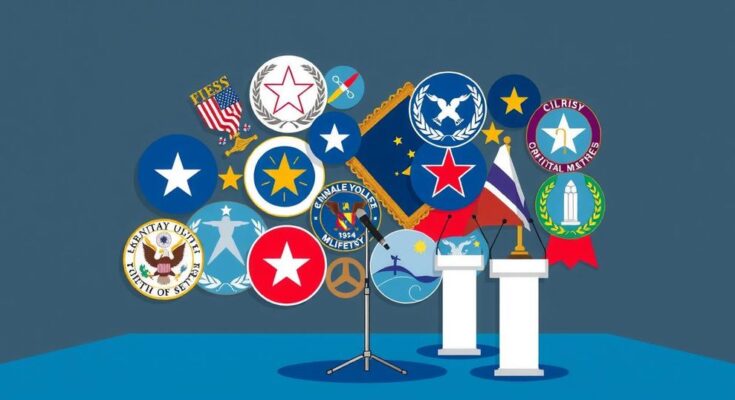In a recent press conference that drew widespread attention, Defense Secretary Pete Hegseth expressed his disappointment with how media outlets were portraying the U.S. military’s strategic strikes on Iran’s nuclear infrastructure. Iraq War Veteran Paul Rieckhoff sharply rebuked Hegseth’s antics, labelling them as “conduct unbecoming” for someone in such an influential position. While Hegseth should be concentrating on genuine threats, critics are worried that he’s more focused on sparring with the press.
Hegseth’s Media Critique Raises Eyebrows
During a recent press conference, Secretary of Defense Pete Hegseth seemed to take aim at the media, voicing his dissatisfaction with their coverage of military actions, specifically regarding U.S. airstrikes on Iran’s nuclear facilities. The back and forth left many, including Iraq War veteran Paul Rieckhoff, questioning the appropriateness of Hegseth’s remarks, particularly in a time of conflict. Rieckhoff, who has been an outspoken advocate for veterans and military personnel, emphasised that the focus should be on the enemies facing the nation rather than on media critiques.
Criticism of Leadership Amid Military Actions
Rieckhoff’s comments reflect a broader concern shared by numerous veterans and military experts — the perceived distraction from critical security matters. When Hegseth redirected attention from the strategic missions at hand to highlight grievances with news outlets, he missed the point about unity and responsibility amidst ongoing military operations. Hegseth’s role as a leader is not merely to complain about the media; it involves ensuring troops are well-equipped and strategising against threats, like the actions of Iran.
Need for Transparency in Military Operations
It might seem that Hegseth’s approach is an attempt to shield himself and the military from media scrutiny. However, veterans like Rieckhoff argue that appearances like these can have adverse effects. With the media documenting military actions and strategies, a transparent dialogue is crucial, as it fosters trust with the public. Hiding behind complaints doesn’t inspire confidence that military priorities are being effectively managed; rather, it may suggest an underlying defensiveness that undermines public faith in the military’s strategy.
Balancing Press Relations and Military Integrity
The ongoing conflict with Iran puts additional pressure on the government and military leaders, as they navigate both domestic and international responses. Critics point out that leaders like Hegseth should focus on building rapport and trust with the public rather than nitpicking media narratives. The relationships forged in times of war can either strengthen or weaken depending on how leaders communicate and engage with the society they profess to represent. Hence, scrutiny from the press might be uncomfortable, but it’s often essential.
The Responsibility of Military Leadership
As military action continues, the importance of responsive leadership cannot be overstated. Veterans and military advocates stress that the administration must prioritise clarity and purpose over engagement in media spats. Rieckhoff’s insights remind us that the duty of leadership is not only to address threats externally but also to cultivate a sense of integrity internally, engaging veterans and active troops alike in honest dialogues about the challenges facing the country.
Why are critics concerned about Hegseth’s comments?
Hegseth’s tone during the press conference was seen by some as inappropriate given the military’s current engagement. Critics urge focus on strategic threats instead of media conflicts.
What do veterans say about the military’s media relationship?
Veterans argue that military leaders should prioritise operational effectiveness and unity against threats, rather than focusing on how they’re portrayed by the media.
What is important for military leaders during conflicts?
Rieckhoff emphasizes that leaders should cultivate trust and transparency with the public to uphold scrutiny while managing military operations effectively.
What role does the media play during military actions?
The media plays a vital role in informing the public about military strategies, and fostering communication is essential for maintaining public trust.
What is expected of military leaders when addressing conflicts?
Effective leadership involves addressing both enemy threats and public concerns, balancing internal integrity with external transparency for operational credibility.




